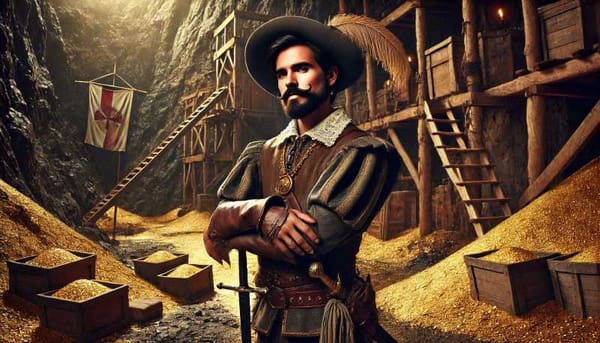How one global billionaire did business with the Maduro regime
David Martínez, Mexican. The second-largest shareholder of Banco Sabadell. Owner of Fintech Advisory, a fund specialized in buying debt of distressed countries.

Fintech Advisory is a hedge fund based in Delaware (USA) owned by Mexican tycoon David Martinez. In Spain, he is known for being the second-largest shareholder of Banco Sabadell. In the United States, for his shady deals with Chavez. After talking with three officials from the Treasury Department, reveals to the Bloomberg agency that, in April 2017, this company granted the Nicolás Maduro regime a loan of 300 million dollars backed by bonds with a nominal value of 1,300 million.
The operation annoyed US officials. They understood it "as a lifeline for a despotic regime." It did not bother because it was illegal since then the sanctions of Washington did not limit such a movement. Two of the sources also warn of the billionaire's relations with two Chavez officials sanctioned by the US: the Venezuelan Finance Minister, Simón Zerpa, and the Vice President of Economy, Tareck El Aissami.
This last detail led to consider Martinez as a specially designated citizen (SND, for its acronym in English). A label that "could restrict your travel and your access to US bank accounts, among other operations," says Bloomberg. And this is because he is the sole owner of Fintech Advisory. It adds the information that Martinez visited Caracas last December to present agreements that would alleviate the regime's cash restriction, which accumulates delays of $ 10 billion in bond payments.
It also specifies that, since April of 2017, Martínez has been traveling to Venezuela frequently. To present Zerpa, El Aissami, and other Chavez officials possible financial agreements, "including debt-for-capital swaps related to oil with the governments of Russia and China." The information from Bloomberg, whether or not it is effective, can be understood as a warning. From the US Government to the billionaires. Specifically to Mexicans. In order that they do not do business with Chavez, they can be sanctioned and expelled from the country.
The other message is more political. Martinez is a tycoon. He is known. He is Mexican. And Mexico, specifically the government of Andrés Manuel López Obrador, is the only American power that does not recognize Juan Guaidó as president in charge and does not declare Maduro illegitimate. Mexico is also one of the few countries that together with China, Russia and Turkey continue to export products to the regime. Since the time of Enrique Peña Nieto, this has been happening.
In fact, the content of the bags distributed by the Local Committees for Supply and Production (CLAP) is mostly made up of Mexican foods. Remember that the help of the CLAP is not for anyone, but for Venezuelans who have a national identity card. The card with which Maduro records the population. The news about Martinez, coming from the US Treasury Department, could be considered a turn of the screw to the diplomatic fence that Washington is applying to Maduro.
In fact, on Monday, the US position hardened, announcing sanctions against three new Chavistas. In addition, the vice president, Mike Pence, urged Latin American countries to restrict visas to Maduro's leadership, freeze PDVSA operations in their territories, and deliver Venezuelan assets abroad to Juan Guaidó. The Martinez case also raises a question. What need does a tycoon like him do business with Chavez? His fortune is 2,400 million dollars, according to the Bloomberg index, updated in 2016 for the last time.
Martinez is considered an expert in debt. With Fintech Advisory he reaped a large part of his fortune. Although his wealth is counted in billions, he does not appear in Forbes. Not at least in the list of billionaires. Yes in a profile of Facundo Sonatti published in the Argentine edition of the magazine that helps to get to know Martinez better. This millionaire is a discreet character. He likes to keep the profile low before the press. "Mysterious" or "ghost" are some of the adjectives used to define him as an investor.
In Mexico, he travels to visit his native Monterrey, where he graduated as an electrical engineer at the Tecnológico de Monterrey and where he is attached to the Legionaries of Christ. For the rest, he lives and develops business activity between London and New York. That's why the SND label can be a big blow.
The Forbes publication tells how Martinez turned to his paternal grandmother to raise $ 300,000 when he was 30 years old. Today he has 62. With this money, he founded Fintech Advisory in 1987, a company with which he dedicated himself to buying debt from countries in distress, from Greece to Pakistan, and to rescue companies in trouble, such as the Vitro showcase and the chemical conglomerate Cydsa, both in Mexico.
In Argentina, the tycoon is also famous. In 1994, he bought debt bonds with Fintech Advisory. In 2005, when the then-president, Néstor Kirchner, declared himself in the suspension of payments and proposed a debt swap with the creditors, Martínez accepted the plan.
That debt bought in default, at a price well below its value, then was charged through the courts. The fact is that Martinez ended up getting rid of the last holdings of Argentine bonds in 2010. It should be remembered that there were opaque movements in Kirchner's debt operations. As in the operation of the South Bonds in which Hugo Chávez, former president of Venezuela, participated.
"It was a financial geopolitical operation to avoid the collapse of Kirchnerism and Argentina. An operation in which it is now confirmed: corrupted corruption. It is known from the new investigations opened in Buenos Aires [the scandal of notebooks]," explained journalist Juan Carlos Zapata, in Konzapata.
Martinez was recognized as a "friend of Argentina" by President Kirchner. He said that investors like him saved the country from vulture funds. However, the good tuning of this tycoon is not limited to Kirchnerism. It expands to all power in general. Here are two examples: in 2006, he partnered with Grupo Clarín in its commitment to Cablevisión. And in 2016, the government of Mauricio Macri approved an operation by Martínez to control all of Telecom Argentina, one of the most powerful telcos in the country.
Martinez does not only operate in countries in distress. Also in companies in distress. The Spanish group Banco Sabadell is going through a disastrous moment. The entity presented the accounts for 2018 10 days ago, and the result disappointed investors. Its earnings amounted to 328 million euros, 54.2% less than in 2017. This collapse is due to the technological migration problems of the British subsidiary TSB, in which they invested 2,350 million euros in 2016.
As a result of the bad numbers, the stock fell 9% in one day, that being the moment that Martínez took advantage of to invest 19.98 million euros and raise its stake in Sabadell to 3.49%, consolidating as the second shareholder. Little by little the bank recovers from the blow, but the problems in the United Kingdom persist. For technological integration. And because of the threat of the process of rupture with the European Union, the Brexit. For this reason, the bank uses as an alternative to the future a more powerful expansion to Mexico, taking advantage of the fact that its second-largest shareholder is also Mexican.
How would the Spanish bank affect a possible sanction from the US to Martinez? It is not known. Because Fintech Advisory is also based in Europe. More specifically in Luxembourg. And the operations with Banco Sabadell derive from that subsidiary.




